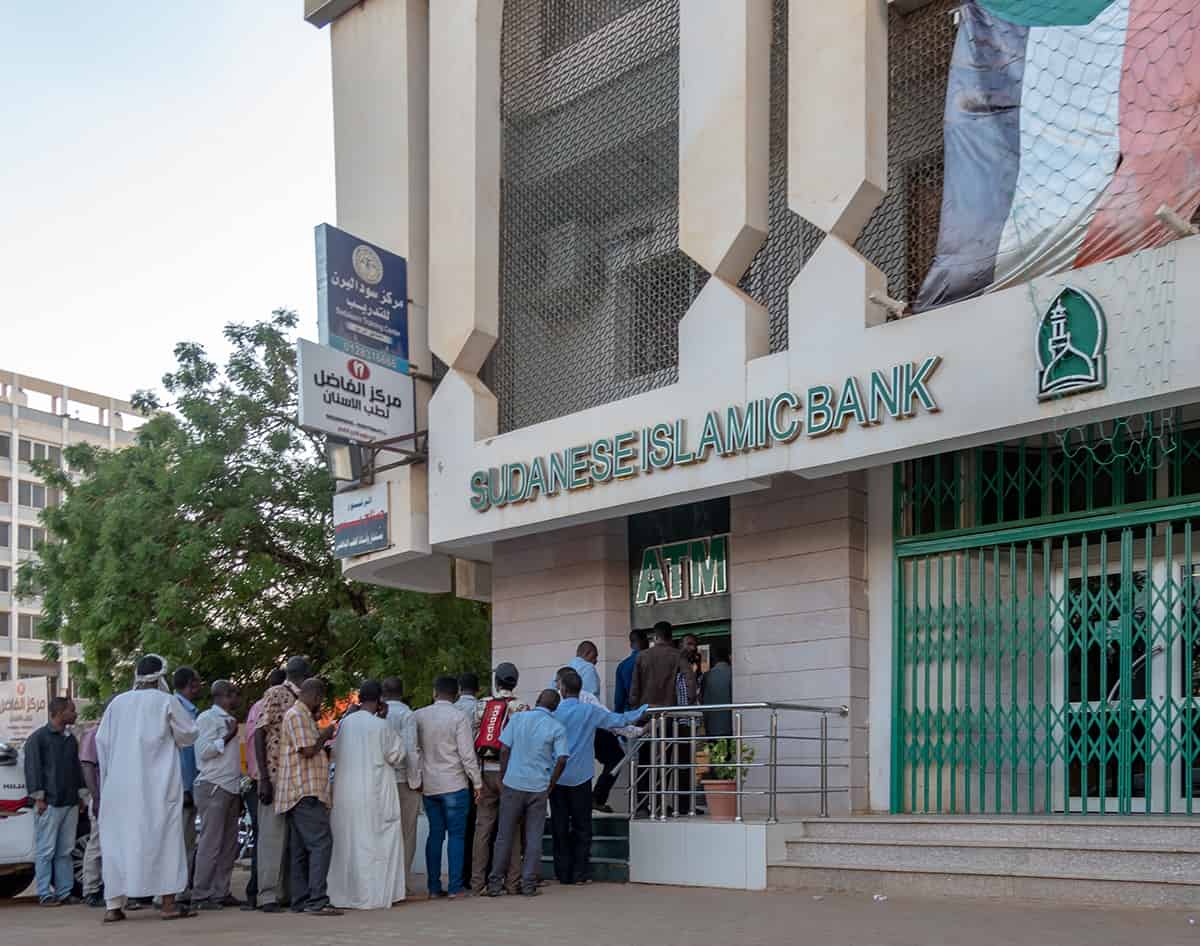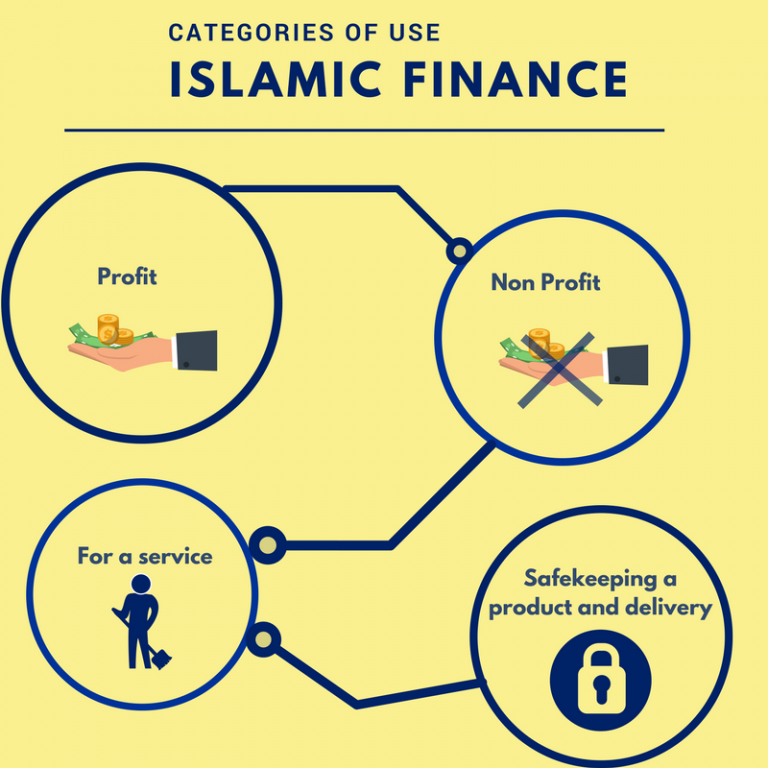Other Islamic Car Financing Methods: How Does Islamic Car Financing Work

Beyond Murabaha and Ijarah, several other Sharia-compliant financing options exist for purchasing a car. These methods offer varying degrees of risk and reward, making it crucial for potential buyers to carefully consider their individual financial circumstances and risk tolerance before choosing a method. The suitability of each method depends on factors such as the car’s price, the buyer’s income and savings, and their comfort level with potential fluctuations in payments or asset ownership.
Comparison of Islamic Car Financing Methods
Several alternative Islamic financing methods offer different approaches to car purchases, each with its own set of advantages and disadvantages. Understanding these nuances is vital for making an informed decision.
| Financing Method | Description | Key Features |
|---|---|---|
| Bai’ Salam | A forward sale contract where the buyer pays the seller upfront for a car to be delivered at a future date. The price is fixed, and the quality and specifications of the car are clearly defined in the contract. | Predetermined price and delivery date; reduced risk for the buyer; suitable for buyers with sufficient upfront capital. |
| Istisna’ | A contract for manufacturing or constructing an asset (in this case, a car). The buyer commissions the manufacturer to build a specific car according to agreed-upon specifications. Payments are typically made in installments during the manufacturing process. | Customizable car; payments aligned with the manufacturing progress; suitable for buyers who desire a specific configuration. |
| Musharakah | A joint venture where the financier and the buyer jointly own the car. Profits and losses are shared according to an agreed-upon ratio. Once the buyer repays their share, full ownership is transferred. | Shared ownership and profit/loss; potentially higher returns for the buyer; requires a higher level of trust and transparency between parties. |
| Mudarabah | An investment partnership where the buyer provides capital (the car purchase price) and the financier manages the investment (procuring and maintaining the car). Profits are shared according to a predetermined ratio, while losses are borne primarily by the financier. | Shared profit and risk; suitable for buyers with limited management experience; relies heavily on the financier’s expertise. |
Suitability of Different Methods Based on Factors
The choice of Islamic financing method depends heavily on individual circumstances. For instance, Bai’ Salam is ideal for buyers who have the full purchase price available upfront and want to minimize risk. Istisna’ suits buyers seeking a customized car and willing to wait for its completion. Musharakah and Mudarabah are more complex and require a greater understanding of shared risk and profit-sharing arrangements. Buyers with limited capital might find Murabaha or Ijarah more accessible, while those with substantial savings could consider Bai’ Salam or Istisna’. Individuals with a higher risk tolerance might be more comfortable with Musharakah or Mudarabah.
Legal and Regulatory Aspects
Islamic car financing, while adhering to Sharia principles, operates within the existing legal frameworks of each country. These frameworks vary significantly, impacting the specifics of how these financial transactions are structured and regulated. Understanding these legal nuances is crucial for both financial institutions and consumers engaging in Islamic car financing.
The legal framework governing Islamic car financing typically involves a combination of general banking laws, specific regulations for Islamic finance, and, in some cases, dedicated legislation for Sharia-compliant financial products. Islamic banks and financial institutions play a vital role in navigating these legal complexities, ensuring compliance and facilitating transactions that align with both Islamic principles and national laws. Their internal compliance departments and legal teams are instrumental in ensuring the legality and validity of each financing agreement.
Regulatory Bodies and Oversight
Various regulatory bodies oversee Islamic banks and the implementation of Islamic financing methods. These bodies ensure that the transactions adhere to both Sharia principles and national financial regulations. For example, in Malaysia, Bank Negara Malaysia plays a key role in regulating Islamic financial institutions, while similar central banks and financial authorities exist in other countries with significant Islamic finance sectors, such as the Central Bank of Bahrain or the Saudi Central Bank (SAMA). These institutions often issue guidelines and directives specifically addressing Islamic financing products, including car financing. The specific regulations vary considerably across jurisdictions, covering aspects like risk management, capital adequacy, and consumer protection within the context of Islamic finance.
The Role of Islamic Banks and Financial Institutions
Islamic banks and financial institutions are central to facilitating Islamic car financing. They act as intermediaries, structuring the transactions to comply with Sharia principles while adhering to national regulations. This involves careful consideration of the contract’s terms, ensuring the absence of interest (riba), and the presence of a genuine sale or lease arrangement. They also play a crucial role in educating consumers about the different Islamic financing options available and the legal implications involved. Furthermore, they are responsible for managing the risks associated with these transactions and complying with the reporting and disclosure requirements stipulated by the relevant regulatory authorities.
Legal Documents in Islamic Car Financing Agreements
The legal documentation involved in an Islamic car financing agreement is designed to clearly Artikel the terms and conditions of the transaction while adhering to Sharia principles. This typically involves several key documents that provide transparency and legal protection for both the financial institution and the consumer.
The importance of these documents lies in their role in protecting the rights and obligations of all parties involved. A thorough understanding of these documents is crucial for both the financier and the customer to avoid any future disputes or misunderstandings. The precise contents and specific terminology used can vary depending on the jurisdiction and the specific Islamic financing structure employed (Murabaha, Ijara, etc.).
- Financing Agreement: This document Artikels the terms and conditions of the financing, including the purchase price, payment schedule, and any associated fees.
- Sale Agreement (for Murabaha): If the financing is based on the Murabaha structure, a separate sale agreement will detail the sale of the car from the bank to the customer at a predetermined cost, which includes the bank’s profit margin.
- Lease Agreement (for Ijara): In an Ijara-based financing, a lease agreement specifies the terms of the lease, including the rental payments, duration, and ownership transfer conditions.
- Security Documents (e.g., Pledge Agreement): These documents Artikel the security offered by the customer to the bank, typically the car itself, to mitigate the risk of default.
- Acknowledgement Receipt: A receipt acknowledging the receipt of the funds and the agreement between parties.
Advantages and Disadvantages

Islamic car financing, while adhering to Sharia principles, presents a unique set of advantages and disadvantages compared to conventional car loans. Understanding these aspects is crucial for prospective buyers to make informed decisions. This section will delve into a comparative analysis to illuminate the key differences.
Advantages of Islamic Car Financing
Islamic car financing offers several attractive features that resonate with many borrowers. These advantages stem from the ethical and transparent nature of the financing process, which aligns with religious principles while often offering benefits even for non-religious individuals.
How does islamic car financing work – One key advantage is the absence of interest (riba). This aligns with Islamic principles and avoids the potential for accumulating substantial interest charges over the loan term, which can significantly inflate the overall cost of the vehicle. Instead, Islamic financing structures, such as Murabaha or Ijarah, utilize different mechanisms to determine the price and repayment schedule. This often leads to a clearer understanding of the total cost upfront. Furthermore, Islamic financing often encourages saving and responsible spending habits, as the borrower typically needs to make a significant down payment and demonstrate financial stability.
Another advantage lies in the greater transparency and clarity of the financing agreement. Unlike conventional loans, where the calculation of interest can be complex, Islamic financing structures are generally simpler to understand, allowing borrowers to easily track their payments and the overall cost of the vehicle. This transparency fosters trust and reduces the potential for hidden fees or unexpected charges.
Disadvantages of Islamic Car Financing
While offering compelling advantages, Islamic car financing also presents some potential drawbacks that potential borrowers should consider. These challenges are often related to the structure of the financing itself and the availability of such options compared to conventional loans.
One potential disadvantage is the potentially higher overall cost compared to conventional loans, especially in scenarios with lower down payments or shorter repayment periods. While interest isn’t charged directly, the profit margin included in the financing structure can sometimes lead to a higher final cost than a comparable conventional loan. The exact cost difference will vary based on the specific financing structure, the market conditions, and the terms of the agreement.
Another potential challenge is the limited availability of Islamic car financing options compared to conventional loans. Depending on the region and the financial institution, finding suitable Islamic car financing options may require more effort and research. The selection of institutions offering Sharia-compliant financing may be more limited than those offering conventional loans, potentially restricting borrower choice.
Comparison of Islamic and Conventional Car Financing
The following table provides a concise comparison of the advantages and disadvantages of Islamic and conventional car financing methods. It highlights the key differences to aid in informed decision-making.
| Feature | Islamic Financing | Conventional Financing |
|---|---|---|
| Interest/Profit | No interest (riba); profit margin included in the sale price | Interest charged on the loan amount |
| Transparency | Generally higher transparency in pricing and repayment schedule | Can be less transparent, especially with hidden fees |
| Overall Cost | Potentially higher overall cost depending on the financing structure and market conditions | Potentially lower overall cost, but with potential for high interest accumulation |
| Availability | May have limited availability depending on the region and financial institution | Widely available across most financial institutions |
| Ethical Considerations | Aligns with Islamic principles and ethical considerations | May not align with ethical concerns for some borrowers |
Choosing the Right Financing Option

Selecting the most suitable Islamic car financing option requires careful consideration of your financial situation, needs, and the terms offered by different providers. Understanding the nuances of each financing method and comparing offers meticulously is crucial to making an informed decision that aligns with your long-term financial goals. This section will guide you through the process of evaluating different Islamic car financing options and negotiating favorable terms.
Factors to Consider When Choosing a Financing Option
Choosing the right Islamic car financing option depends on several key factors. These factors should be carefully weighed against each other to determine the best fit for your individual circumstances. Ignoring even one of these factors can lead to an unfavorable financing arrangement.
- Down Payment: The initial amount you pay upfront significantly impacts your monthly payments and the overall cost of financing. A larger down payment generally leads to lower monthly installments and potentially a lower overall interest rate equivalent.
- Monthly Payment Amount: Your monthly budget plays a critical role in determining the affordability of a financing plan. Carefully assess your income and expenses to ensure that the monthly payments are manageable without causing financial strain.
- Financing Tenure (Loan Term): Longer loan terms typically result in lower monthly payments but increase the total interest paid over the life of the loan. Shorter terms mean higher monthly payments but less interest paid overall.
- Profit Rate (Return Rate): Islamic financing institutions typically use profit rates or return rates instead of interest rates. Compare these rates across different institutions to find the most competitive offer. Remember that these rates can fluctuate.
- Fees and Charges: Be aware of any associated fees, such as processing fees, administration fees, or early settlement penalties. These can add significantly to the overall cost of financing.
- Reputation and Track Record of the Institution: Choose a reputable and well-established Islamic financial institution with a proven track record of providing excellent customer service and transparent financing practices.
Evaluating and Comparing Financing Offers
Once you’ve identified a few potential financing options, it’s essential to compare them systematically. Creating a comparison table can be extremely helpful in this process. This will allow you to quickly identify the best option based on your priorities.
| Institution | Financing Method | Profit Rate/Return Rate | Down Payment | Monthly Payment | Loan Term | Total Cost | Fees |
|---|---|---|---|---|---|---|---|
| Institution A | Murabaha | 6% | 10% | $500 | 48 months | $26,000 | $100 |
| Institution B | Ijara | 7% | 15% | $450 | 60 months | $28,500 | $50 |
| Institution C | Musharakah | 5.5% | 20% | $400 | 72 months | $30,000 | $0 |
Note: This is a simplified example. Actual offers will vary depending on the car’s value, your creditworthiness, and market conditions.
Negotiating Favorable Terms
Don’t be afraid to negotiate with Islamic financial institutions. While profit rates are often fixed, you might be able to negotiate on other aspects of the financing agreement, such as:
- Down Payment: Explore the possibility of reducing the required down payment, even if it slightly increases your monthly payments.
- Fees: Inquire about the possibility of waiving or reducing certain fees, especially if you’re a long-standing customer or have a strong credit history.
- Loan Term: Discuss the possibility of adjusting the loan term to better suit your budget and financial goals. Remember that this will affect your total interest paid.
Remember to always thoroughly read and understand the terms and conditions before signing any financing agreement. Seeking advice from a qualified financial advisor can be beneficial in making the right choice.
Illustrative Example
Let’s follow the journey of Aisha, a young professional, as she secures Islamic car financing for a new vehicle. This example will illustrate the typical process, highlighting the key documents and stages involved.
Aisha decides to purchase a new family car, priced at $30,000. She researches various Islamic financing options and chooses Murabaha financing from a reputable Islamic bank.
Application and Documentation
Aisha begins by submitting her application to the Islamic bank. This involves providing detailed personal information, including her identification documents (passport and driver’s license), proof of income (payslips and tax returns), and bank statements demonstrating her financial stability. She also provides details about the car she intends to purchase, including the make, model, and year. The bank will verify all this information. Crucially, Aisha also provides details of her desired financing plan, specifying the down payment amount and the repayment period. A crucial document is the sales agreement between Aisha and the car dealership, which specifies the final price of the car. The bank will use this to determine the financing amount.
Bank’s Purchase of the Car
After reviewing Aisha’s application and verifying the information, the bank approves her financing request. Under the Murabaha contract, the bank purchases the car directly from the dealership on Aisha’s behalf. The bank pays the full price of $30,000 to the dealership. This is a critical step differentiating Islamic finance from conventional loans. The bank doesn’t lend Aisha money directly; it acts as an intermediary facilitating the purchase.
Murabaha Agreement and Repayment Schedule, How does islamic car financing work
Following the purchase, the bank enters into a Murabaha agreement with Aisha. This agreement details the cost price of the car paid by the bank ($30,000), the markup (profit) added by the bank (let’s say 5%, totaling $1,500), and the total amount Aisha must repay ($31,500). The agreement also Artikels the repayment schedule, specifying the monthly installments over a period of, say, 48 months. Aisha receives a copy of this legally binding agreement. The repayment schedule is clearly defined, outlining the amount and due date of each installment.
Repayment Process
Aisha makes her monthly payments to the bank as per the agreed-upon schedule. The bank provides her with regular statements showing the amount paid, the outstanding balance, and any additional charges, if any. Aisha meticulously keeps copies of all payment receipts and bank statements. The entire process is transparent and easily traceable through the provided statements and the Murabaha agreement.
Final Payment
After 48 months, Aisha makes her final payment, completing her obligations under the Murabaha agreement. Upon completion of all payments, the bank releases the car ownership to Aisha, and she receives the necessary documents confirming the full ownership transfer.

Tim Redaksi